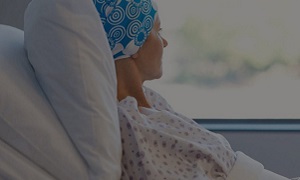العلاج الكيميائي
إذا فكرنا في السرطان، فسوف يتبادر إلى ذهننا على الفور كلمة “العلاج الكيميائي”. فعلى الرغم من عيوبه العديدة، يظل العلاج الكيميائي الخصم الأكثر قوة لخلايا السرطان إلى جانب العلاج الإشعاعي و/أو الاستئصال الجراحي.
العلاج الكيميائي هو استخدام عقار مضاد للسرطان يساعد على إبطاء أو إيقاف نمو الخلايا سريعة الانقسام التي تسبب السرطان. فهو يمنع نمو الخلايا سريعة الانقسام عن طريق قتل الخلايا المنقسمة. غالبًا ما يستخدم العلاج الكيميائي مع تدخلات أخرى مثل الجراحة أو الإشعاع والعلاجات الأخرى.
في بعض الأحيان، يتم إعطاء العلاج الكيميائي قبل الجراحة، مثل العلاج الذي يمكن استخدامه لتقليص حجم الورم قبل الجراحة. وهذا ما يسمى بالعلاج المساعد الجديد. وعندما يستخدم العلاج الكيميائي لإزالة أي خلايا سرطانية متبقية، بعد الجراحة، يُعرف هذا بالعلاج الكيميائي المساعد.
يعتمد استخدام العلاج الكيميائي على:
- مرحلة ونوع السرطان
الصحة العامة للمريض
العلاجات السابقة للسرطان
موقع الخلايا السرطانية
فوائد العلاج الكيميائي:
- – تقليل عدد الخلايا السرطانية في جسم المريض.
– تقليص حجم الورم لأنه يوقف نمو الأوعية الدموية الجديدة التي تغذي الورم.
– تقليل انتشار السرطان.
– تقليل أعراض السرطان.
– في المرحلة المتأخرة من السرطان، يساعد العلاج الكيميائي على تقليل الألم.
طرق إعطاء العلاج الكيميائي
اعتمادًا على المريض، يتم إعطاء العلاج الكيميائي؛
عن طريق الفم – في بعض الأحيان، يتم إعطاء المريض أقراصًا يمكن تناولها في المنزل. لكن المرضى يحتاجون إلى زيارة المستشفى بانتظام للفحص ومراقبة استجابة العلاج.
العلاج الكيميائي عن طريق الوريد – يتم إعطاء الدواء مباشرة في الوريد.
داخل القراب الشوكي، يتم حقنه في الفراغ بين طبقات الأنسجة التي تغطي الدماغ والحبل الشوكي
كحقنة داخل الصفاق (IP)، يتم إعطاؤها مباشرة في الأمعاء والمعدة والكبد
داخل الشرايين (IA)، يتم حقنها في الشريان الذي يؤدي إلى السرطان
مدة
للحصول على أفضل النتائج، يتم إعطاء العلاج الكيميائي للمريض بشكل منتظم على مدى فترة زمنية يحددها طبيب الأورام أو أخصائي السرطان. تعتمد مدة العلاج على نوع ومرحلة السرطان وتتراوح من جرعة واحدة في يوم واحد إلى بضعة أسابيع.
سيحصل المرضى الذين يحتاجون إلى العلاج لأكثر من يوم واحد على فترة راحة للسماح لجسمهم بالتعافي.
الآثار الجانبية للعلاج الكيميائي
- الغثيان والقيء
تساقط الشعر
التعب
العدوى
ضعف السمع
انخفاض عدد الصفائح الدموية
مشاكل النزيف
فقر الدم
فقدان الشهية
مشاكل الأمعاء
الأسئلة الشائعة
كم من الوقت تشعر بالسوء بعد العلاج الكيميائي؟
- يحدث القيء الحاد غالبًا بعد حوالي 5 أو 6 ساعات من العلاج الكيميائي. يبدأ الغثيان والقيء المتأخر بعد أكثر من 24 ساعة من العلاج الكيميائي وحتى 5 إلى 7 أيام بعد العلاج.
كم عدد جولات العلاج الكيميائي الطبيعية؟
- تعتمد مدة الدورة على العلاج المقدم. تتراوح مدة معظم الدورات من أسبوعين إلى ستة أسابيع.
كم مدة جلسة العلاج الكيميائي؟
- يعتمد علاج العلاج الكيميائي على خطة العلاج الفردية التي يصفها الطبيب. بعضها يستمر لمدة ثلاث أو أربع ساعات، بينما قد يستغرق البعض الآخر نصف ساعة فقط

